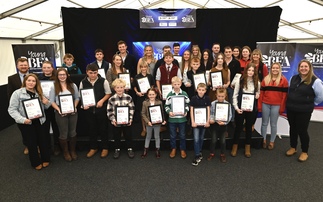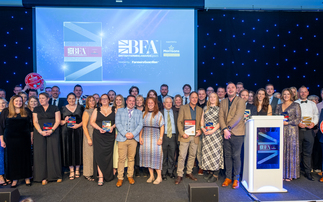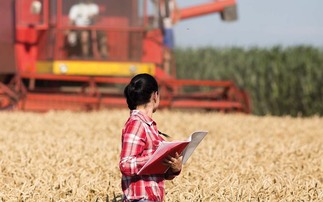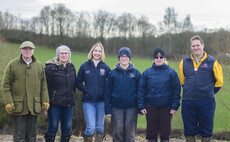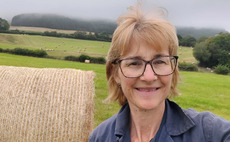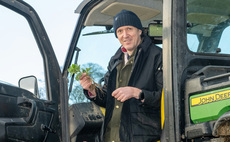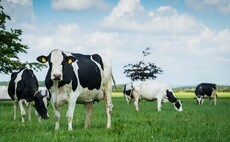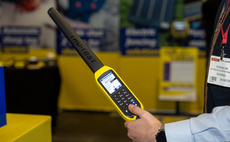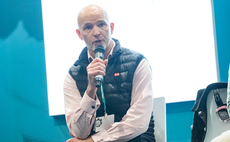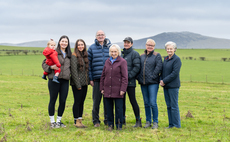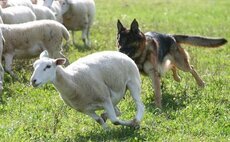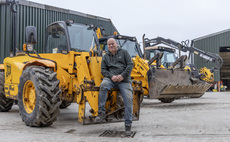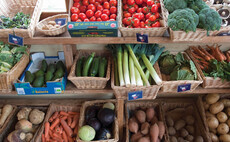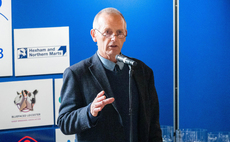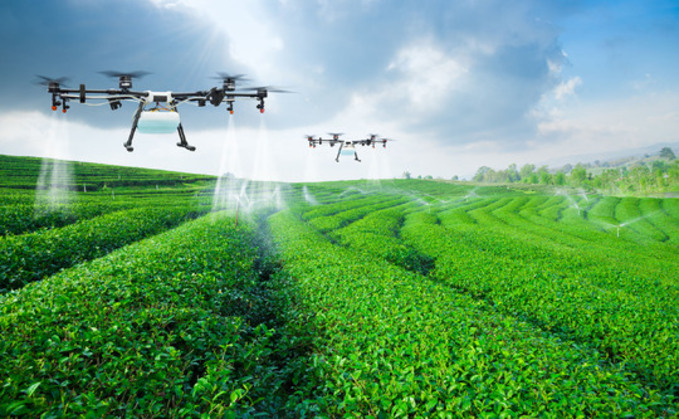
The entrants may not have an agricultural background, but their innovative technologies are helping farmers and industry professionals find solutions, whether that be increasing crop yields, streamlining data, improving animal health or lowering carbon footprints for the farming sector.
Each of these finalists have highlighted a specific industry issue and created exciting pieces of technology to tackle it.
PES Technologies
Soil health innovator, PES Technologies, has developed a market-leading product designed to analyse soil health instantaneously. This new product is the brainchild of Andrej Porovic, CEO of PES, who discovered a gap in the market following a meeting with experts from the National Institute of Agricultural Botany. Andrej created a handheld device that provides in-field data on over 12 indicators of biological, chemical, and physical soil health in five minutes.
Understanding soil biology is critical to understanding soil health, and the lack of good-quality, affordable testing has hampered the profitable implementation of environmentally sustainable farming practices.
READ NOW: Meet the British Farming Awards Dairy finalists of the year
The test uses a soil sample from a depth of five to15cm, which is inserted into the device and connected to a mobile phone, the user hits ‘go' and results are delivered in five minutes. The results given cover microbial biomass, respiration, soil organic matter percentage, water holding capacity, field water content, soil text, extractable ammonium, extractable nitrate, available phosphorus and available potassium.
PES allows farmers to make informed decisions when time is a critical factor - historically, lab results can take weeks to complete, by which time, the soil conditions could have drastically changed. Private and public funding from the Government and Investors has allowed the development of the world's first technology to ‘smell' soil to get these results.
O3T Ltd
O3T provides, develops, and manufactures uniquely innovative engineering and nanotech solutions for agriculture, horticulture and water processing. Orchestrated by research and development director, Piran Bassett, and technical director, Charlie Wellon, O3T aims to bring revolutionary technology to the market with five key goals. The goals are to eliminate chemicals, reduce or eliminate antibiotics, improve animal health and welfare, reduce the carbon footprint of the industry and improve production and food security.
This industry leading product called O2X, uses a combination of air, water, electricity and a lot of clever physics to increase the oxygen levels in water. Originally targeted at the poultry industry, the aim was to reduce bugs and bacteria from water without using pesticides and chemicals, improving the health of the birds and providing a ‘cleaner' end product for human consumption. To date, five million birds are benefitting from the O2X system, with trials for pigs and cattle due to start later this year. Since its creation O2X has been approached by one of the UKs biggest salad growers to eliminate the use of chemicals in their irrigation lines.
Involvement of one of the UK's top agricultural universities and one of the UK's top physical science universities coupled with leading poultry vets helps the team monitor its progress, with university experts estimating that full adoption of O2X could yield an annual national carbon saving of 1.8 million tons in the poultry sector alone.
O2X controls biofilms without chemicals, it improves FCR, lowers mortality, increases thermal tolerance, provides more consistent crop yield, reduces/eliminates antibiotic use and lowers carbon footprints. It does this by hyper oxygenating water, stripping oxygen from atmospheric air and introducing it into the water in a nanoscale gas bubble providing an unsuitable environment for bugs and bacterial organisms to live.
READ NOW: Low capital entry into livestock farming is not impossible
Lactalign
Lactalign is a device designed to minimise the cases of mastitis in a dairy herd, balancing the weight of a milking cluster on a cow by supporting the milk and pulsation pipes. The idea was born when agricultural engineer James Hudson was contacted by a local dairy farmer who needed a solution for his rotary milking parlour, as he had identified a bias in the number of mastitis cases in his herd.
Investigation and experimentation was needed to create the design, but 2020 saw the first full rotary parlour fitted with Lactalign. The product is used manually - once the milker has attached the cluster to the cow as normal, they place the Lactalign cord, milk pipes and pulsation tubes in one of the three slots depending on the udder height of each cow. Once milking is complete, the ACR cord is used to reset the device for the next cow.
Independent studies by miking consultant Ian Ohnstad have shown a significant reduction in liner slip, kick-off and reattachments. Over time, the bias in mastitis is reduced, resulting in an undeniable return on investment. There has also been some unexpected benefits such as a reduction in cows with non-milk-producing quarters.
Since its creation as a rotary parlour device, Lactalign has been adapted to suit rapid-exit and herringbone parlours. This development is expected to continue as more farmers require new brackets to suit their milking parlours, including unexpected markets that have purchased the product, such as Tiawan.
Synergy Farm Health, Buitelaar Group, Soma Biosciences, Bimeda UK
ImmunIGY Bovine IgG is a novel, pen side test blood test that can reliably determine the antibody (IgG1) status of calves up to six weeks of age. When calves suffer failure of passive transfer, which occurs when antibodies are not transferred from the colostrum at birth for early life protection, they suffer from both long-term and short-term implications. FPT impacts calf welfare, supply chain sustainability and the environment. Sufferers will be more disease prone, they will have decreased productivity, suffer increased mortality and reduced welfare, all of which present higher costs for the producer.
ImmunIGY test includes blood collection using a novel lancet which punctures the calves nose like a pin prick, a few drops of blood are collected and tested using a lateral flow device. The electronic reader expresses the IgG level within the blood as mg/ml within four seconds of being placed onto the LFD.
This test can benefit any type of calf rearer as well as dairy farmers and vets. The new technology can be used to audit suppliers, predict performance and proactively reduce disease outbreaks. Although the results from the tests cannot be changed, farmers can house poorer calves elsewhere to minimise herd contamination, and herd replacements, or breeding changes can be made if results are found throughout the herd.
Hoofcount Ltd
Developed using machine learning and vision technology, the Hoofcount Pedivue, launched in 2024, detects early signs of digital dermatitis (mortellaro). Located on the exit of the footbath, the vision system monitors each hoof daily, and using machine learning and AI, notifies the farmer or herdsperson of any early signs of lameness that may not be visible to the human eye.
Early detection of any disease, including lameness, is essential to improve animal welfare. Pedivue was created to tackle this before a disease has a negative or costly impact on cow or herd health, and subsequently on milk production and fertility. The average cost of a single case of lameness in approximately £300 per cow, making it crucial for a farm's fiscal success to find and treat lesions early.
After securing Government funding to develop and bring this product to market, the team at Hoofcount enlisted experts such as Agri Epi centre, Bristol University laboratory and Innovate UK to create and bring the project to fruition. The product is currently in use on select farms in the UK, however following its launch at Dairy Tech the team hope to roll out to herds across the UK.








